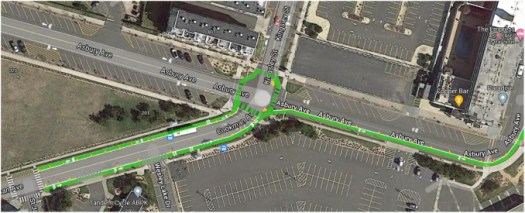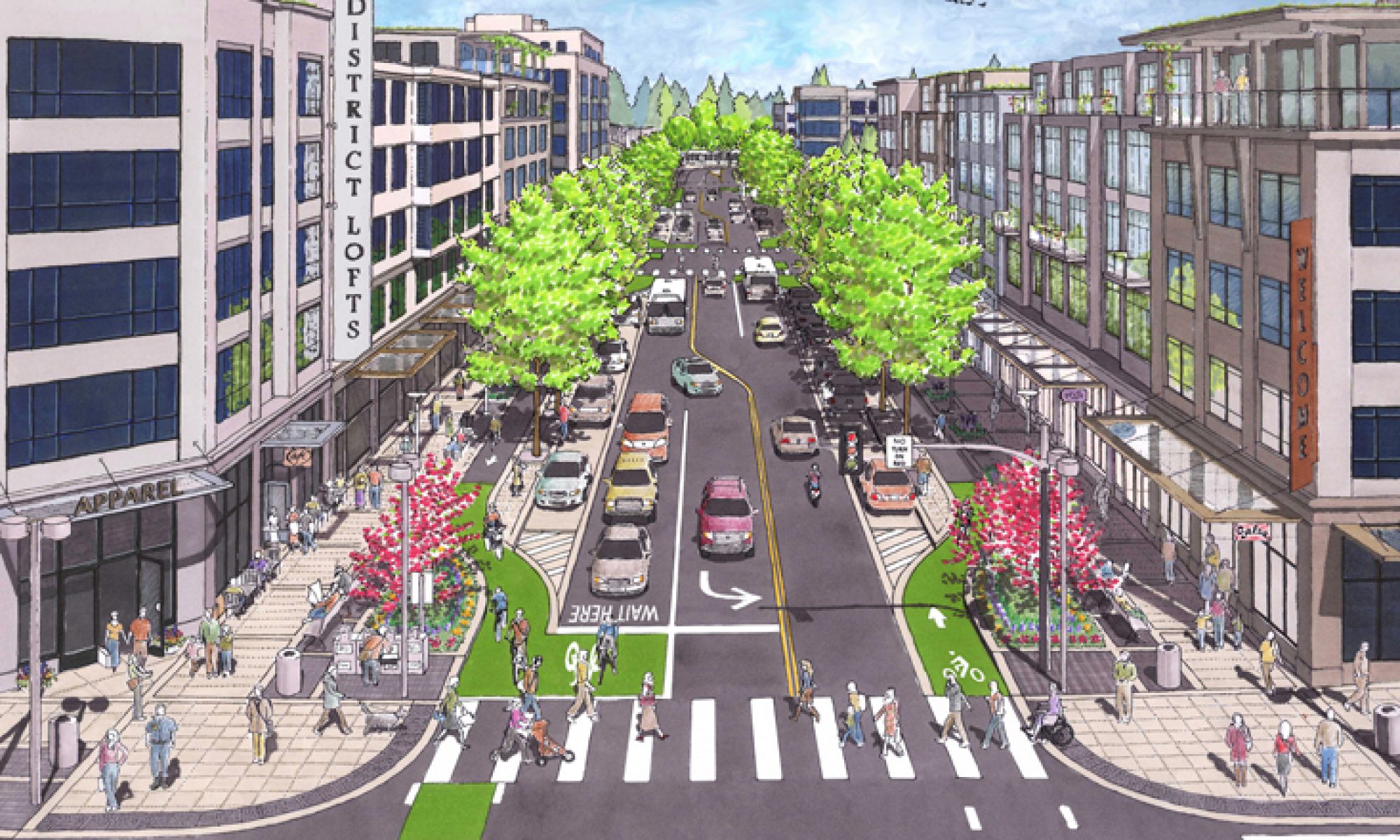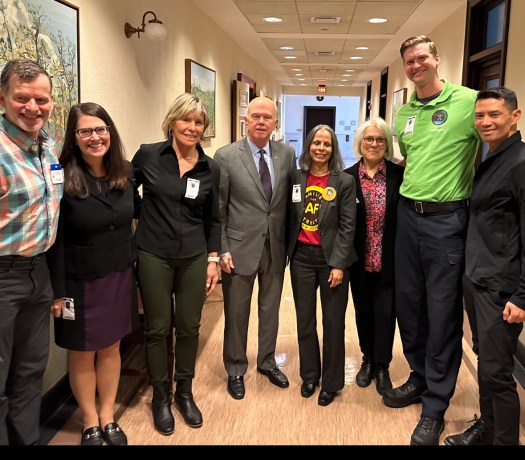Hello readers~
Whether you ride a bike or not, you’ll probably agree…
Asbury Park has been slow to implement bicycling infrastructure. Over four years ago some painted stripes and sharrows (stenciled “sharing arrows”) were installed, but since then there has been negligible painted implementation, and there are no protected, delineated bike lanes anywhere in the city.
After this Rutgers study was done in 2022 there was some hope that it would have inspired permanent implementation of protected bike lanes, or even painted striping, particularly in this area of the study, since bike lanes were proven to have a positive traffic calming impact.
There are no protected, delineated bike lanes, or markings of any kind in the area of this study, and we are still waiting for bicycling infrastructure to be implemented consistently throughout the city.
We expect Asbury Park leaders to recognize that it is inequitable to prioritize driving over vulnerable road users, and to take action to make our streets safe for everyone.
From the NJ 4′ Safe Passing Law advocate Rebecca Feldman:
Let’s be clear about the endgame. It’s not that we want people to travel slower, it’s that we NEED fewer people being injured and killed by speeding drivers.
Related: APCSC and other advocates testify for Target Zero at Senate Transportation Committee
TRAFFIC CALMING EFFECT OF BIKE LANES
In this study, protected bicycle lanes marked with simple traffic cones and plastic delineators were associated with a reduction in average maximum speeds of 20 to 30 percent.
 The findings prove the traffic calming effect during the time of this pop-up in 2022.
The findings prove the traffic calming effect during the time of this pop-up in 2022.
The findings come from an analysis of almost 10,000 cars during a temporary pilot demonstration project in Asbury Park, N.J., where bike lanes were both painted and delineated with traffic cones. The study incorporated 24-hour video footage of the intersection for 10 dates in March and April 2022.
The results of the study: “The Traffic Calming Effect of Delineated Bicycle Lanes,” by nine researchers at Rutgers University, including the Edward J. Bloustein School of Planning and Public Policy, will be published in the June volume of the Journal of Urban Mobility.
Average top speeds of vehicles dropped by 28 percent, by 21 percent for vehicles turning right, and by up to 8 percent for drivers going straight.
Painted-only bike lanes were also associated with a reduction of 11 to 15 percent solely for vehicles turning right. Traffic moving perpendicular to the bicycle lane experienced no decrease in speeds.
Bicycle lanes with traffic delineators will have a stronger traffic calming effect, such as reductions in speed, than with painted-only bike lanes, according to the study.
“In the context of traffic safety and Vision Zero initiatives, this finding is significant in that it suggests that delineated bike lanes can reduce traffic speeds, making the overall road environment safer for all. The pop-up bike lane reduced the traffic lane width and created a sharper turning radius, which likely served as a traffic calming mechanism.”
There is no shortage of assistance to help New Jersey towns and cities to take action, such as from NJTPA. The North Jersey Transportation Planning Authority is the federally authorized Metropolitan Planning Organization for the 13-county northern New Jersey region. Each year, we oversee over $2 billion in transportation improvement projects and provide a forum for interagency cooperation and public input.
Federally, the Rebuilding American Infrastructure with Sustainability and Equity (RAISE) Transportation Discretionary Grant program provides a unique opportunity for the U.S. Department of Transportation (USDOT) to invest in road, rail, and transit.
The Rutgers New Jersey Bicycle & Pedestrian Resource Center assists public officials, transportation and health professionals, and the public in creating a safer and more accessible walking and bicycling environment through primary research, education and dissemination of information about best practices in policy and design.
Let’s make Asbury Park an accessible, equitable city for everyone.
Onward.
Polli Schildge, Editor









